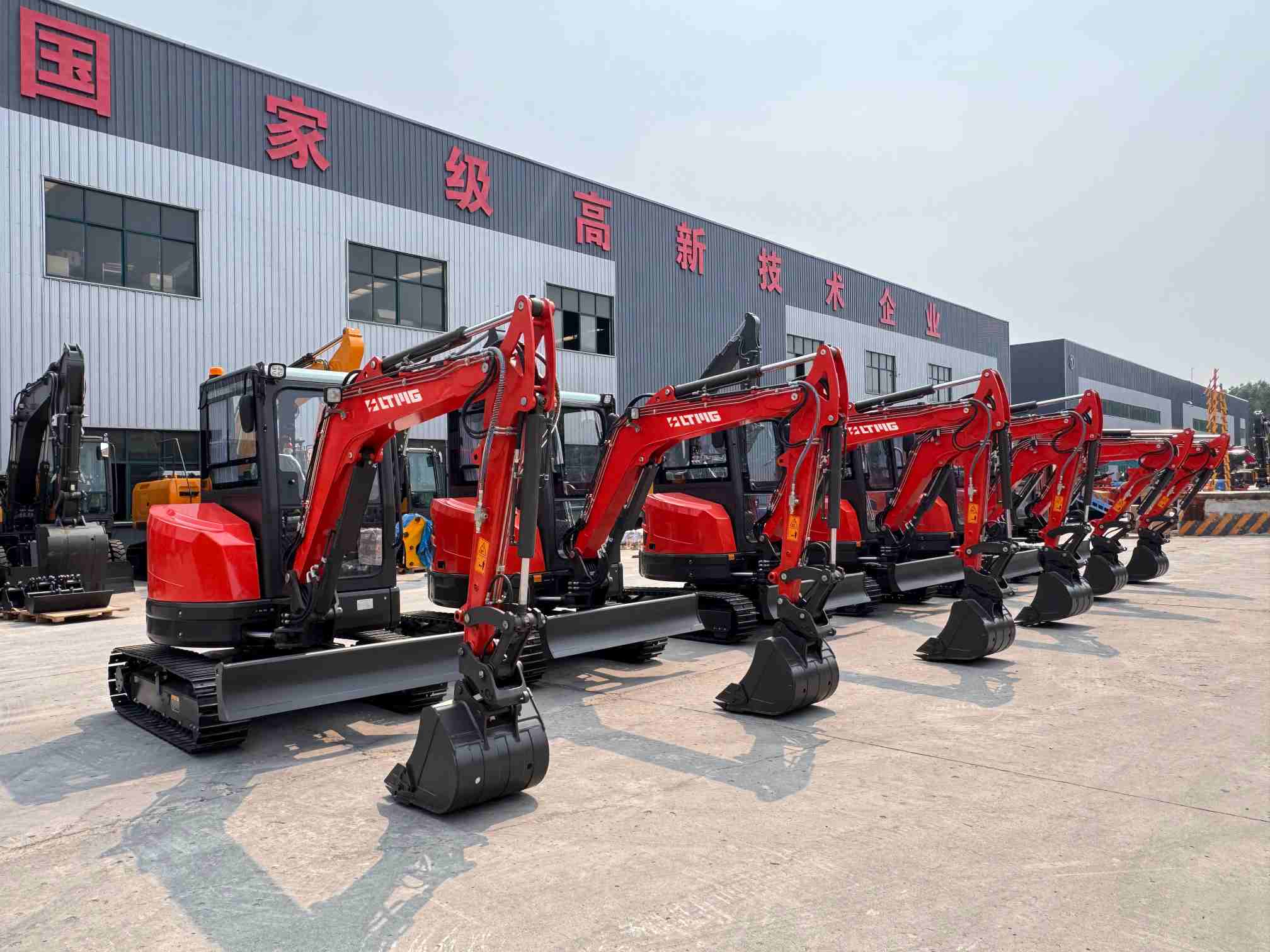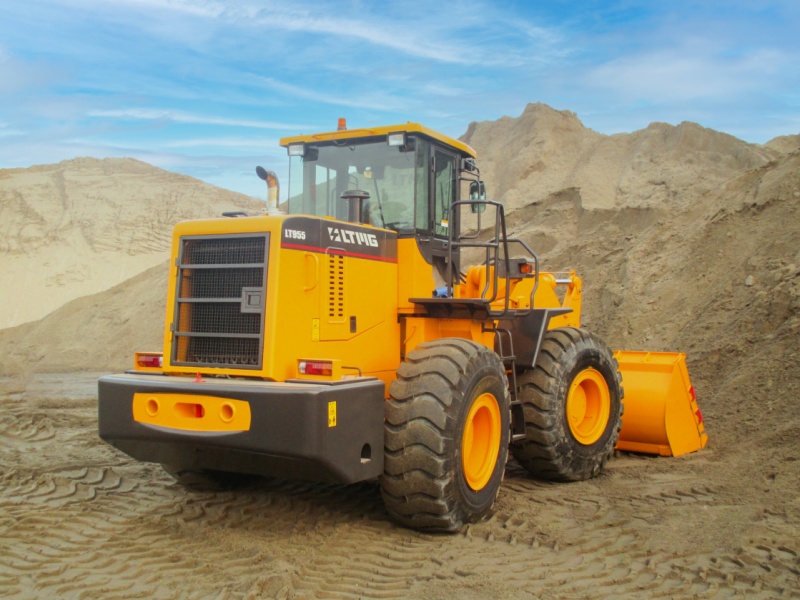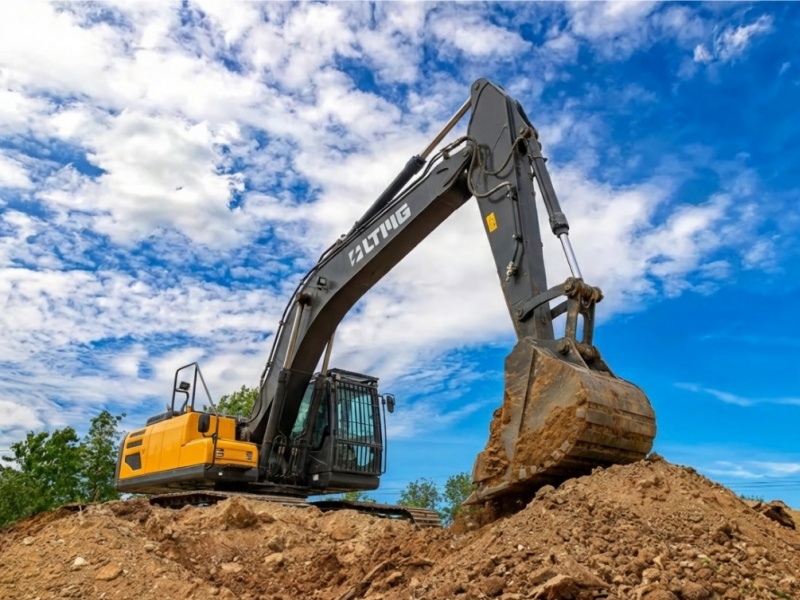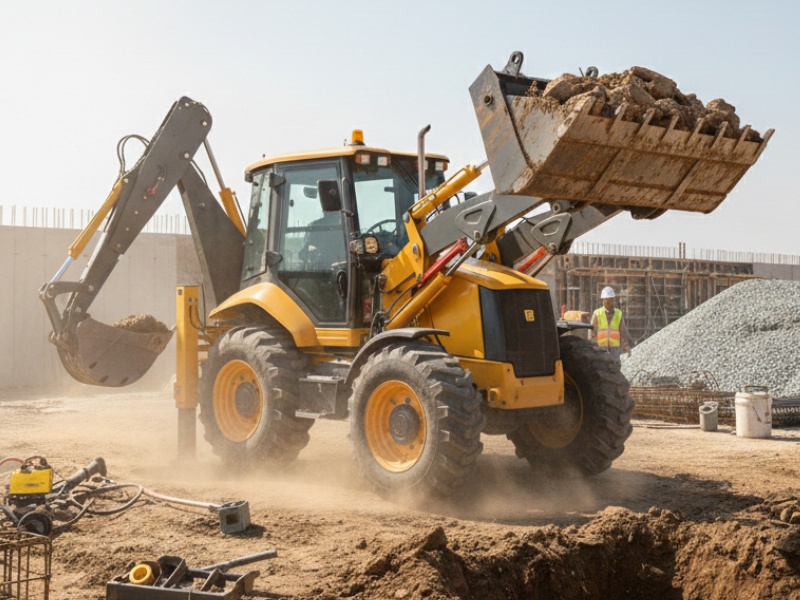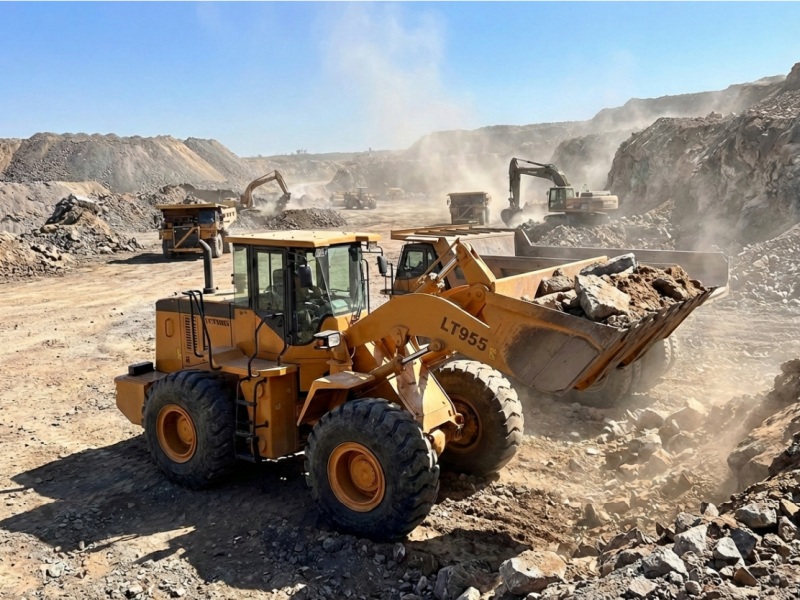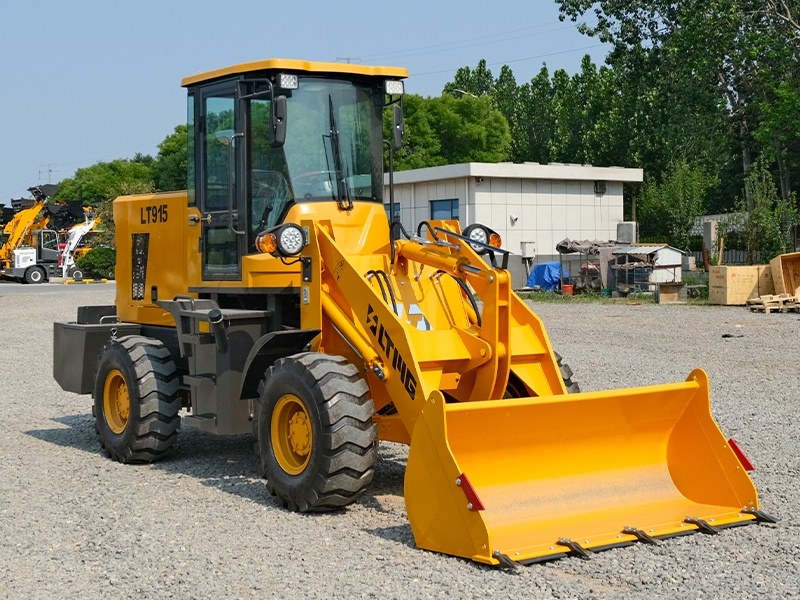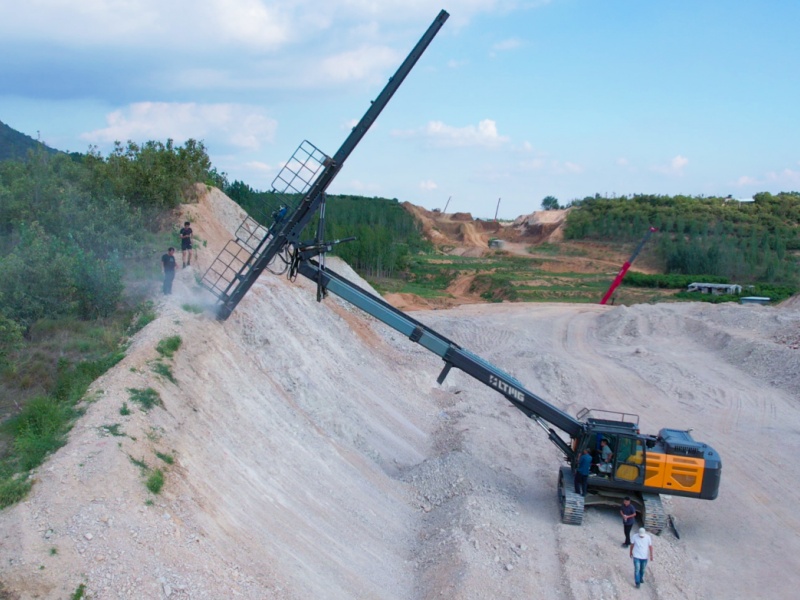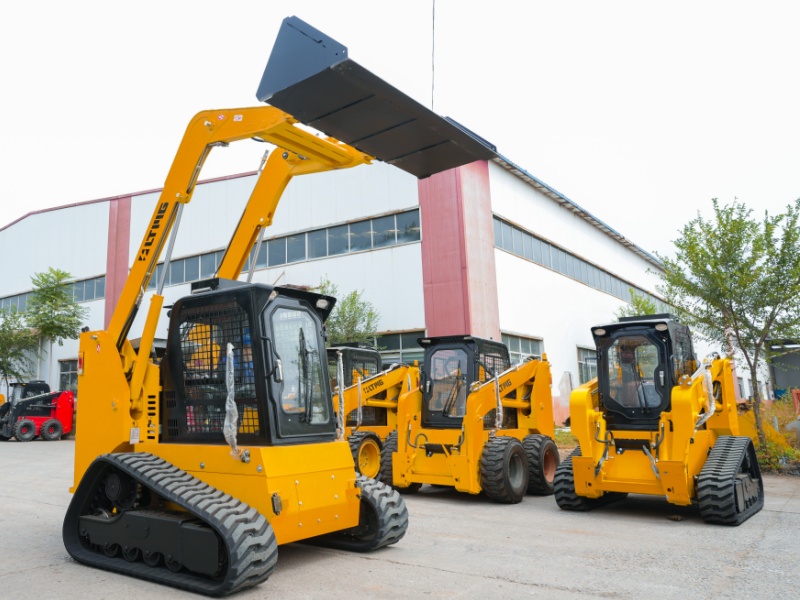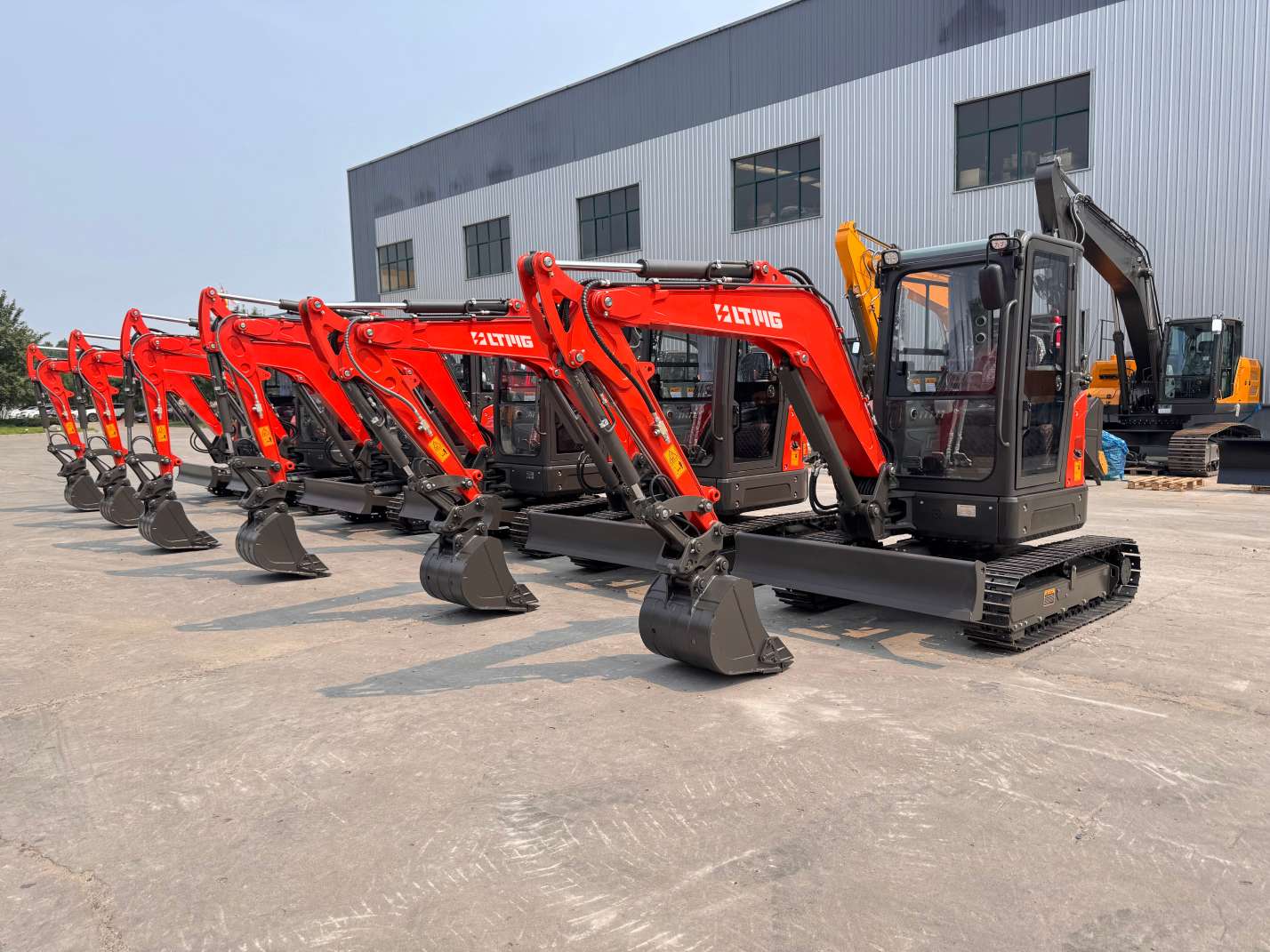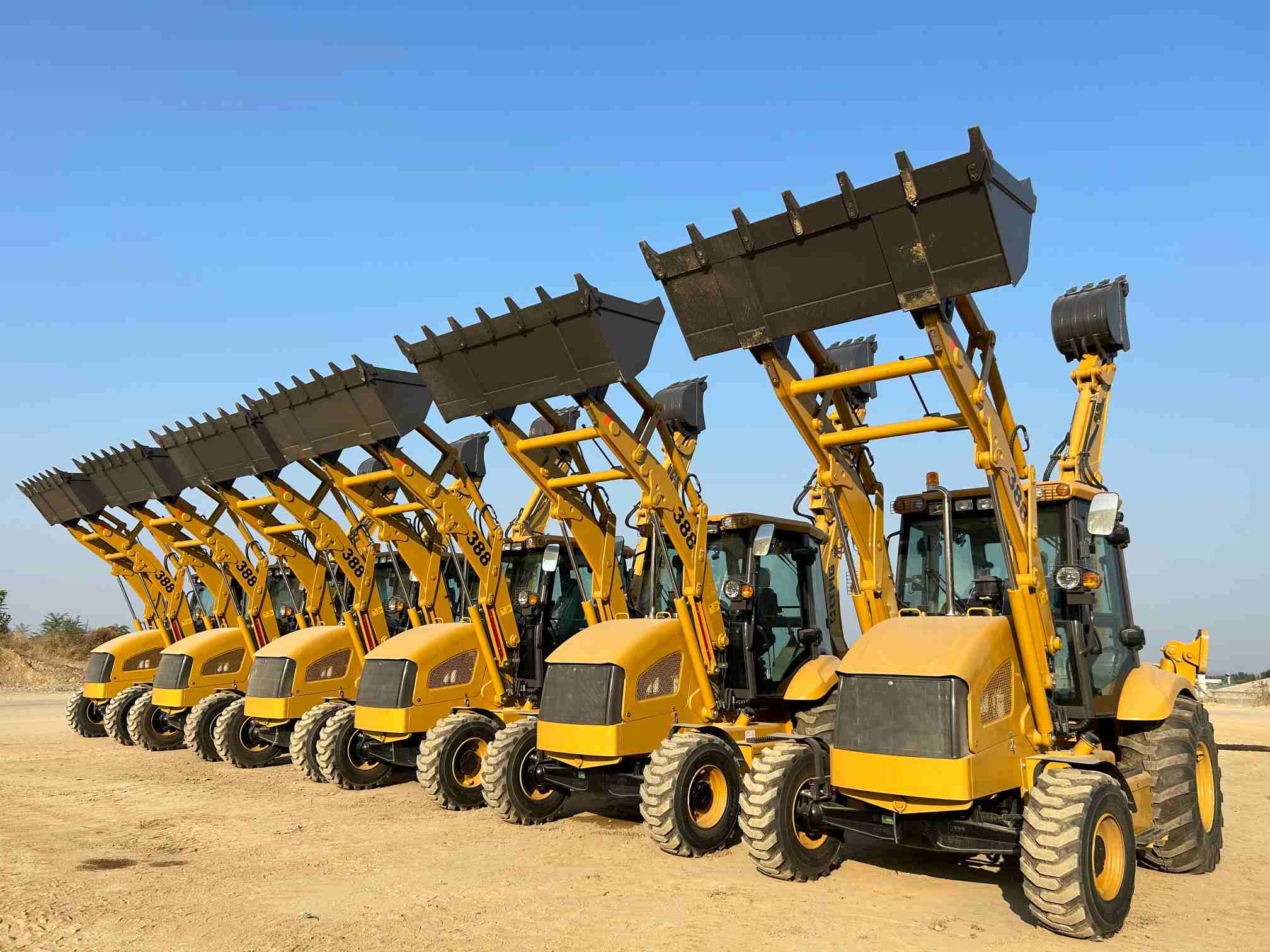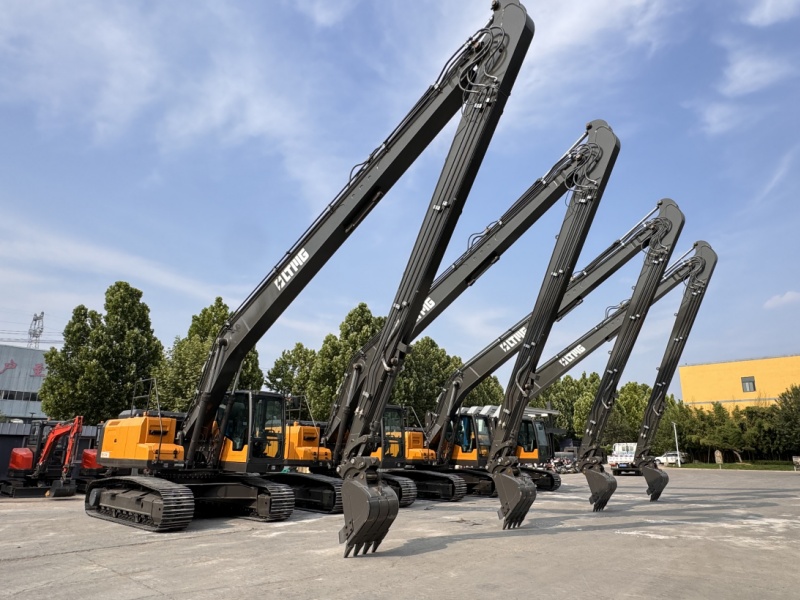La guía definitiva para minicargadoras rentables para pequeñas empresas: cómo maximizar el retorno de la inversión desde la compra hasta el mantenimiento
Nov 21, 2025
I. Introducción: Por qué las pequeñas empresas necesitan un "multiplicador de fuerza"En el competitivo mercado actual, la eficiencia no es solo una palabra de moda: es supervivencia. Para contratistas generales, agricultores, paisajistas y gerentes de almacén, la mayor ganancia reside en realizar más trabajo con menos personal.El valor fundamental: no solo una máquina, sino un potenciador de la productividadUn minicargador es más que un simple hardware; es un activo estratégico que ofrece tres ventajas competitivas clave para las pequeñas empresas:1. Agilidad inigualable: gracias a su capacidad de radio de giro cero, maniobra sin esfuerzo a través de callejones estrechos, almacenes abarrotados o sitios de renovación de interiores estrechos donde los equipos pesados más grandes simplemente no pueden caber.2. Versatilidad (el efecto "navaja suiza"): gracias a una amplia gama de accesorios, una máquina puede transformarse instantáneamente en una excavadora, una carretilla elevadora, una quitanieves o una topadora, ampliando enormemente su oferta de servicios.3. Reducción de costos laborales: Un solo cargador de dirección deslizante con un operador capacitado a menudo puede replicar el rendimiento de un equipo de trabajo manual de 3 a 5 personas, sin tomar descansos ni llamar para avisar que está enfermo.Esta guía va más allá de simplemente encontrar equipos económicos. Nos centramos en la alta relación calidad-precio. Le guiaremos a lo largo de todo el ciclo de vida, desde el análisis de necesidades y la selección precisa hasta el mantenimiento económico, para ayudarle a tomar la mejor decisión de inversión. II. Conceptos básicos: Comprensión de las cargadoras compactas para pequeñas empresasAntes de abrir tu billetera, miremos debajo del capó para entender exactamente qué estás comprando.1. ¿Cómo funciona?En términos simples, un minicargador es una máquina compacta que se dirige variando la velocidad y la dirección de las ruedas (u orugas) en lados opuestos.En pocas palabras: Gira exactamente como un tanque. Puede girar 360 grados dentro de su propio espacio. Para pequeñas empresas que trabajan en espacios reducidos, como paisajismo o demolición de interiores, esta maniobrabilidad es irremplazable.2. ¿Qué tipo se adapta a su lugar de trabajo?El mercado está inundado de opciones, pero los propietarios de pequeñas empresas deben centrarse en estas distinciones principales:Por tren de aterrizaje (movimiento):Cargadora compacta con ruedas: velocidades de desplazamiento más rápidas e ideal para superficies duras como hormigón, asfalto o tierra compactada.Propuesta de valor: menores costos de reemplazo de neumáticos y mantenimiento más sencillo en comparación con las orugas.Cargadoras compactas de orugas (CTL): menor presión sobre el suelo, perfectas para condiciones de barro, arena o césped sensible.Nota: Si bien es excelente para la flotación, el mantenimiento del tren de rodaje es más costoso. A menos que el terreno lo exija, las ruedas suelen ofrecer una mejor rentabilidad.Por ruta de ascensor:Elevación radial: El cucharón se mueve en arco. Ofrece una mayor fuerza de arranque y es estructuralmente más simple.Ideal para: excavar, nivelar y empujar. Generalmente más económico.Elevación vertical: El cucharón se eleva verticalmente. Ofrece mayor altura de elevación y mayor alcance en la parte superior del ciclo.Ideal para: Cargar camiones de volteo y apilar pallets.3. El perfil de una máquina de "alto valor"Para una pequeña empresa, la opción ideal para una minicargadora rentable incluye:Alta compatibilidad: Equipado con una placa de conexión rápida universal estandarizada, por lo que no está obligado a utilizar accesorios costosos y patentados.Mecánico sobre electrónico: Si bien las pantallas digitales son llamativas, los controles piloto mecánicos suelen ser más resistentes, confiables y más económicos de reparar para los propietarios de flotas pequeñas.Utilidad: Una puerta trasera y un radiador que se abren fácilmente para acceder a los filtros y al motor, lo que minimiza el tiempo de inactividad durante los controles de rutina.III. Selección inteligente: definir sus necesidades realesLa máquina más cara no es la que tiene el precio más alto, sino la que está inactiva. Evita el remordimiento del comprador analizando primero tus necesidades.1. Define el escenario de tu industriaConstrucción: Priorizamos la durabilidad y el caudal hidráulico para el funcionamiento de los martillos hidráulicos. Una robusta máquina de elevación radial suele ser la herramienta ideal en este caso.Agricultura/Ganadería: Priorizar la navegabilidad (flotación) y la idoneidad para la limpieza de establos. Una cabina cerrada con climatización es crucial para la comodidad del operador, evitando el polvo y los olores.Paisajismo/Municipal: Probablemente cambie de herramienta con frecuencia (palas para árboles, barredoras). Asegúrese de que la máquina tenga suficiente caudal hidráulico auxiliar para alimentar estos implementos de alto consumo.2. Cuantifique sus especificaciones (no adivine)Base su decisión en datos, no en intuiciones:Capacidad operativa nominal (ROC): ¿Cuál es el material más pesado que maneja? (por ejemplo, si un palé de adoquines pesa 800 kg, la ROC de su máquina debe superar los 850 kg).Altura de descarga: ¿A qué altura están las plataformas laterales de su camión volquete o tolva? Asegúrese de que la altura del pasador de la bisagra supere fácilmente el borde.Restricciones dimensionales: Mida la puerta o portón más pequeño de su obra habitual. Si la máquina no cabe, sus especificaciones de rendimiento no importan. IV. Estrategias para una operación y mantenimiento rentablesUna vez que la máquina está en su lote, ¿cómo mantiene bajos los costos de funcionamiento?1. El funcionamiento eficiente ahorra combustibleDeje de usar el acelerador a fondo: En muchas aplicaciones, un 70-80 % del acelerador proporciona suficiente potencia hidráulica. Acelerar a fondo solo aumenta el consumo de combustible y el ruido, sin agilizar el trabajo.Giros suaves: Las contrarrotaciones bruscas y agresivas son la principal causa de daño a los neumáticos y las orugas de goma. Enseñe a los operadores a usar giros en Y o de tres puntos para prolongar la vida útil del tren de rodaje.2. "El mantenimiento es más barato que la reparación".La grasa es barata, el acero es caro: Engrase todos los puntos de pivote a diario. Un tubo de grasa cuesta centavos; reemplazar pasadores y bujes desgastados cuesta cientos. Haga las cuentas.Revise los filtros de aire con frecuencia: Las obras de construcción son polvorientas. Un filtro de aire obstruido obliga al motor a trabajar más, lo que aumenta el consumo de combustible. Límpielos regularmente para mantener la máxima eficiencia del motor.Suministro inteligente de repuestos: Una vez finalizado el periodo de garantía, considere filtros y lubricantes de repuesto de alta calidad de marcas reconocidas. Esto puede reducir los costos de materiales de mantenimiento en un 50 % sin sacrificar la protección.3. La magia de los accesorios: una máquina, muchos trabajosEstrategia combinada: Adquiera la máquina principal y un cucharón estándar. Añada una horquilla para palés (en sustitución de las carretillas elevadoras) y una barredora (en sustitución de los equipos de limpieza manual).Alquilar vs. comprar: en el caso de accesorios especializados y costosos que se usan solo una o dos veces al año (como una cepilladora en frío o una pala para árboles), alquilar es mucho más rentable que comprar. V. Tendencias futuras: ¿Vale la pena adquirir una minicargadora eléctrica?El diésel sigue siendo el rey, pero la ola eléctrica se acerca. ¿Cuándo es conveniente una minicargadora eléctrica para una pequeña empresa?Costo inicial vs. TCO a largo plazo: Los modelos eléctricos actualmente cuestan entre un 30 % y un 50 % más al inicio. Sin embargo, el consumo energético es aproximadamente una décima parte del del diésel, y no requieren cambios de aceite, filtros de combustible ni reparaciones complejas del motor.Ventaja del nicho de mercado: Si su empresa licita proyectos en interiores, excavaciones de sótanos o trabajos en zonas sensibles al ruido (hospitales, escuelas), una máquina eléctrica es una solución revolucionaria. Elimina los gases de escape y el ruido, lo que podría permitirle obtener contratos que la competencia diésel no puede igualar.Veredicto: Si sus horas de operación diarias son constantes y tiene una infraestructura de carga confiable en su patio, el período de retorno de la inversión (ROI) para cargadores eléctricos se reduce rápidamente; a menudo, se alcanza el punto de equilibrio en solo 2 o 3 años. VI. ConclusiónLa compra de un minicargador es fundamentalmente una inversión en la capacidad futura de su empresa.La lógica para una elección rentable es simple: adaptar las especificaciones al trabajo, calcular el costo total de propiedad y priorizar la confiabilidad sobre las características llamativas. ¿Tiene dudas sobre dos modelos específicos? ¿O quizás no está seguro del ROC que necesita para su carga de trabajo? Contáctenos hoy mismo. Estamos aquí para brindarle asesoramiento profesional basado en datos para ayudarle a construir su flota.
